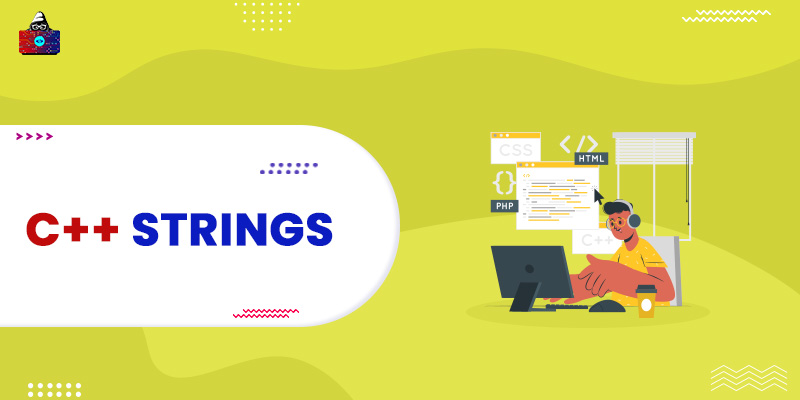A String is a one-dimensional array of character data types which ends with a null value represented by '\0'. The array of character always terminates with a null value, so if there is a character array(string) of size 6 and it has only 5 elements filled, so the 6 th place would be a null value.
To initialize a string
There are two techniques by which we can initialize a string:
char string[10]={'t','e','c','h','g','e','e','k'};
OR
char string[10]="techgeek";
string[10] value stored as:
------------------------ |t|e|c|h|g|e|e|k|'\0'| | ------------------------
Note: The string should always reside in double quotes “ ”.
'a' Vs "a" (Character Vs String)
If any value is inside single quotes then it considered as a Character in C++ and if its inside double quote it considerer String: So here 'a' represent a single character and, "a" represents string. Example
#include <iostream>
using namespace std;
int main()
{
char ch = 'T', string[20]= "TechGeekBuzz";
cout<<"The value ch store is: "<<ch;
cout<<endl;
cout<<"The value string store is: "<<string;
return 0;
}
Output The value ch store is: T The value string store is: TechGeekBuzz Behind the code Here ch and string belong to the same data type char, but both represent different data structure. ch is a character data type whereas string is a character array data structure. That’s why ch is only able to store one character and string is able to store 20 characters.
C++ in-built String Function
C++ has a string library that contains some C++ string in-built functions. To use these string functions we need to mention the header file name of the string function, which is <#include string.h> .
| String Function | Description |
| strcpy( str1 , str2 ); | Copy the value of string str2 into string str1 |
| strcat( str1 , str2 ); | Concatenate string str2 with string str1 . Join the value of str2 in str1 |
| strlen( str1 ); | It returns the total number of characters present in the string. |
| strcmp( str1 , str2 ); | It compares str2 with str1 , and return 0 if str1 and str2 are same, returns less than 0 if str1 is smaller than str2 and return greater than 0 if str1 is greater than str2 . |
| strchr( str1 , ch); | It returns the pointer to the first occurrence of character ch in the string str1 . |
| strstr( str1 , str2 ); | Returns a pointer to the first occurrence of string str2 in string str1 . |
Example
#include <iostream>
#include<string.h>
using namespace std;
int main()
{
char str1[10]="tech", str2[10]="geek", str3[10], ch='t';
strcpy(str3,str1); // copy the value of str1 into str3
cout<<"The value of str3: "<<str3;
cout<<endl;
cout<<"The value of strcat(str1, str2) is: "<<strcat(str1,str2); //add the value of str2 in str1
cout<<endl;
cout<<"The length of str2 is: "<<strlen(str2); // print the length of str2
cout<<endl;
}
Output
The value of str3: tech The value of strcat(str1, str2) is: techgeek The length of str2 is: 4
People are also reading:
